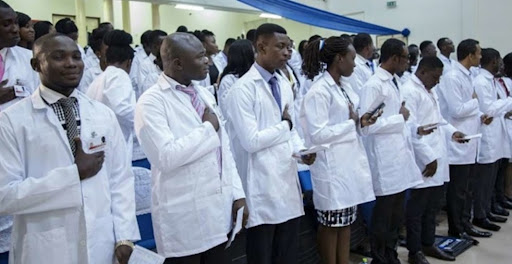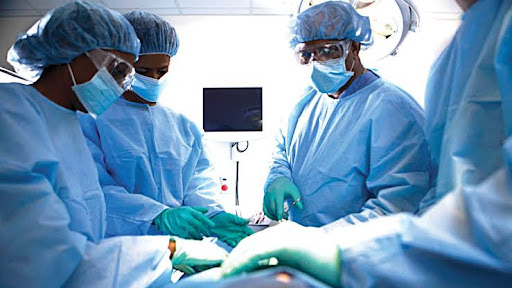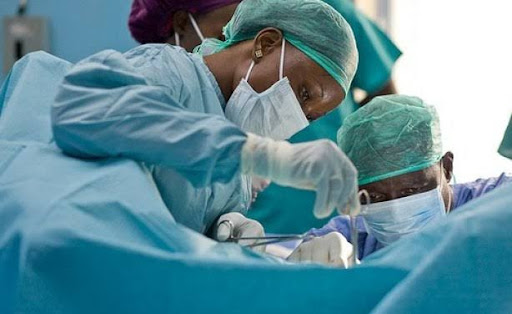The Nigerian Doctor (6): ‘I’ve Now Turned To Farming’
As the federal government and the country’s resident doctors remain at a stalemate, Aliyu Tanko, who works in Nasarawa State, turns to another source of livelihood.

Aliyu Tanko has a small farm he dedicates time to nowadays as the nationwide resident doctors’ strike continues.
“Even if earning a salary is difficult to achieve as the government stops paying salaries, getting vegetables to prepare soup and eba should not be hard,” he tells HumAngle.
Even before the strike action, life as a medical doctor had not been rosy for Tanko. He is unmarried and yet to have his own family because “the stipend I get from the job cannot help build a home. I have a mother and father in the village. I can’t even go there to check on them. I don’t have the money and the luxury of time to do so.”
But despite these, Tanko misses his patients and recalls advising a pregnant woman not to take self medication for the safety of her unborn child. “Now that hospitals are on strike, she may be forced to do that,” he says.
“Some of our patients are dying. It is my prayer that the strike should not linger beyond this week but that may not be possible because authorities are not acting well.”
Tanko had spent 10 years as an undergraduate student at Nnamdi Azikiwe University, Akwa Ibom to fulfil his dream of becoming a doctor. He tells HumAngle that becoming a doctor did not come as a tea party for him, and having practiced for six years, he wonders if it is really worth it.
“I first had a degree in microbiology before I went back to the same school to study medicine for six years,” he narrates. “After my first four years, I started again from 100 level for medicine. My interest was basically because I wanted to save lives.”

Six years after graduation
“I have been in practice for six years now. I was a medical officer for three years before starting my residency training programme. I used to work in a general hospital in Nasarawa before joining Dalhatu Araf Specialist Hospital, Lafia as a gynecologist.
“I ask myself every day if it is truly worth it because the situation continues to deteriorate. People believe that doctors are rich but that’s not true. Despite the fact that we are not being paid well, we don’t also have the opportunity of making extra funds.”
“The residency programme does not give room to do any other thing. It is a totally regimented process and we are tied with just salary. The sacrifice one makes to offer better service is futile.”

Amidst all of this, Tanko still believes that things would turn around positively in the health sector.
“We are only demanding the basic necessities of life. We’ve had cases where light goes off in the theatre while operating. There are many things to fight for.”
“I have had opportunities to leave but on second thought, there is no place like home. We don’t want to leave the health sector in the hands of quacks.”
HumAngle reported how Idrisu, who works at Dalhatu Araf Specialist Hospital, Lafia, Nasarawa State and also doubles as the leader of National Association of Resident Doctors (NARD) in North-central Nigeria vowed to remain in Nigeria to fight for the betterment of the health sector.
These two doctors are optimistic that agitations by the patients and health workers would help the sector.
Support Our Journalism
There are millions of ordinary people affected by conflict in Africa whose stories are missing in the mainstream media. HumAngle is determined to tell those challenging and under-reported stories, hoping that the people impacted by these conflicts will find the safety and security they deserve.
To ensure that we continue to provide public service coverage, we have a small favour to ask you. We want you to be part of our journalistic endeavour by contributing a token to us.
Your donation will further promote a robust, free, and independent media.
Donate HereStay Closer To The Stories That Matter




